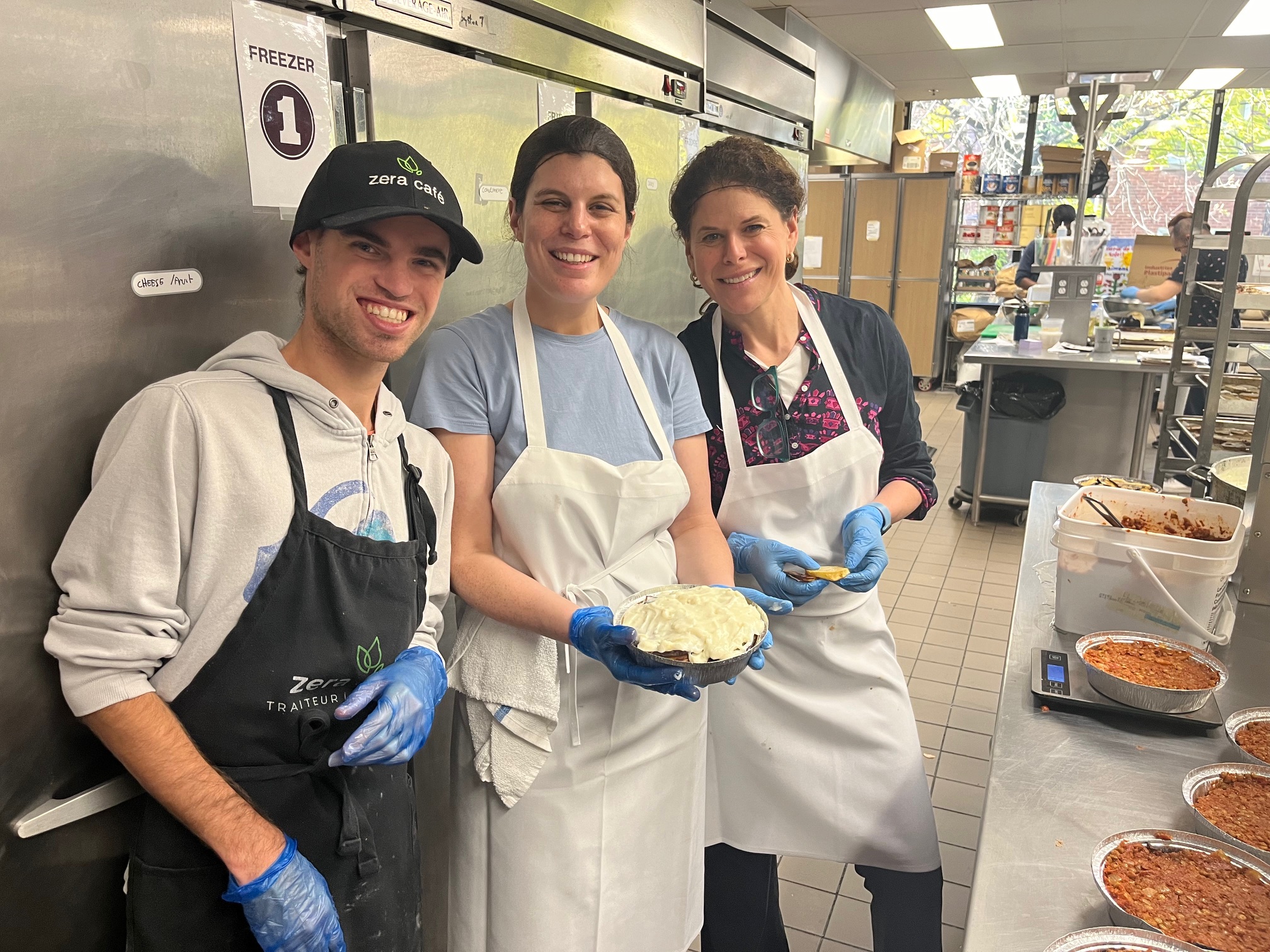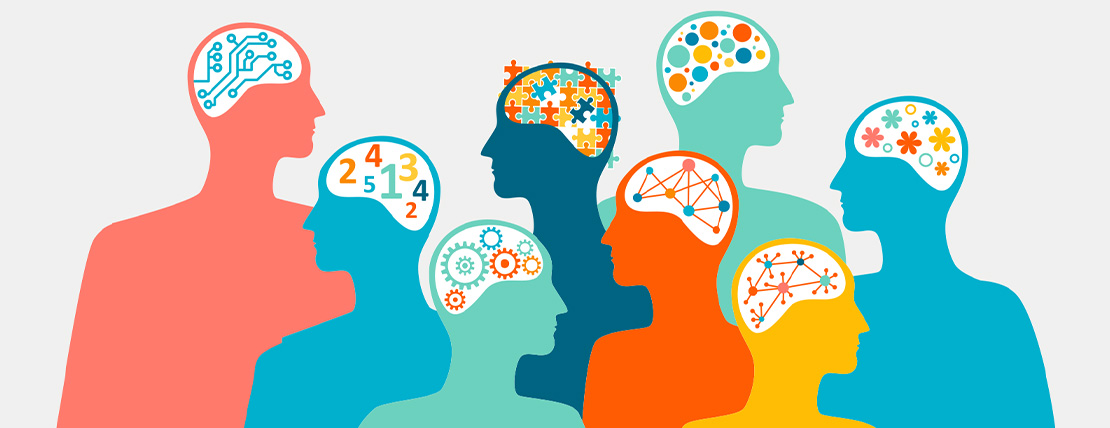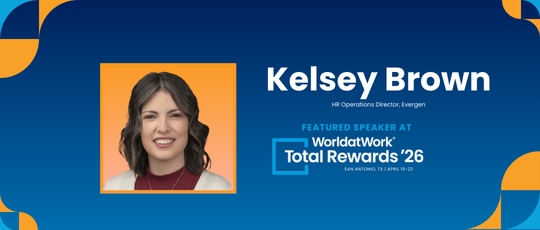Montreal’s Zera Café is a not-for-profit meal service that employs neurodiverse young adults. Founded in 2019 by Eve Rochman, it currently has 15 kitchen associates that perform a variety of tasks, such as food preparation, food packaging and inventory management.
For many of these young adults, this is their first job, said Rochman.
“It’s their chance to get some experience, build life skills and be part of a community,” she said.
And it's a community that is growing.
About 15% to 20% of the world’s population exhibits some form of neurodivergence, according to some studies. In psychological literature, the most common conditions used under the umbrella term “neurodiversity” include attention deficit hyperactivity disorder (ADHD), autism, developmental coordination disorder (DCD) and dyslexia. Other conditions may include mental health conditions like depression and anxiety, general learning disabilities, and Tourette Syndrome.
Neurodivergent individuals can offer a tremendous pool of untapped talent, one that many employers have not yet noticed.
“We know from our research that neurodivergent individuals have many very strong skills and competencies that lend themselves well to specific roles,” said Rob O’Donohue, a vice president analyst at Gartner, where he also serves as the research lead on diversity, equity and inclusion for executive leaders.
For example, people with ADHD have exceptional focus and problem-solving abilities, and autistic people are meticulous and have higher analytical thinking. Yet, many neurodivergent individuals still lack employment. In fact, unemployment for neurodivergent adults runs as high as 30% to 40%, according to the University of Connecticut’s Center for Neurodiversity & Employment Innovation.
Rochman said neurodivergent individuals are being overlooked because there is an assumption they are not capable, but the reality is they possess special skills. For example, many of her employees are autistic — they like structure and order and to see things in a certain way, so Rochman has turned those qualities into assets. “They make sure all the containers are stacked and they keep track of inventory,” she said.
Many neurodivergent individuals, like the ones employed at Zera Café, may communicate differently, which puts them at a disadvantage for certain kinds of recruiting and interviewing processes. Here are some of the challenges employers have identified in their recruiting processes and how they have worked to adapt those processes to be more inclusive for neurodivergent individuals.

Inside Zera Café, a not-for-profit meal service that employs neurodiverse young adults.
Finding Focus During Interviews
Joseph Riddle is the director of Neurodiversity in the Workplace, which connects highly qualified neurodivergent candidates to career opportunities with inclusive employers. His organization recommends employers provide the candidate the interview questions in advance, because oftentimes managers do the hiring and lack the necessary skills to find the qualified candidates. Sometimes, he said, they are taking an incorrect approach.
“Oftentimes, what people are interviewing for is rapport, and rapport is great, but it doesn't actually replicate the job in any way,” he said.
Instead, asking for samples of work is a preferred method, Riddle said, because it will give a more accurate snapshot of what the person can contribute.
Anthony Pacilio, vice president of Neurodiverse Solutions at CAI, a global technology services firm with more than 8,500 associates worldwide, said that whether it’s a HR representative or a manager conducting the interview, it’s important they lead with empathy. This includes education about why panel interviews with multiple people asking varied questions may be difficult for someone with ADHD or why someone who has delayed processing may take longer to answer questions from an interview.
Communicating can be a challenge for some individuals with neurodiversity. If the interview is being conducted on a virtual platform like Zoom or Microsoft Teams, it’s important to understand that a screen reader may be used, or other accommodations may be needed.
“It's our job on the opposite side to make them feel comfortable, so that they can bring their whole self to work,” Pacilio said.
O’Donohue said some organizations offer remote interviews without the camera on or a non-interview-based assessment in which the candidate can work on a project, submit it and be considered based on the deliverable.
In some cases, organizations are looking to games to assess a candidate because they are able to better focus on that than a standard interview.
“For example, an individual with autism may engage much more focused in a kind of a game-based assessment like gamification and be assessed through that as opposed to a standard panel interview,” O’Donohue said.
Providing More Accommodations
According to the CAI, there are several ways workplaces can offer accommodations to neurodivergent individuals during the interview process. They include:
- Enabling closed captioning to help comprehend video and audio content
- Positioning a desk away from high-traffic areas to reduce anxiety
- Reducing overstimulating lighting and sounds to decrease distractions
- Providing noise-canceling headphones to block our distracting sounds and conversations for better concentration
Tammy Harper, chief human resources officer at CAI, said these accommodations assist with removing barriers that can otherwise hinder someone’s experience or work performance.
“When we make accommodations, we're not just making physical alterations or providing special equipment, we're redefining the landscape of what a supportive and inclusive workplace looks like,” she said. “It's about recognizing the potential in every individual regardless of physical or cognitive abilities.”
Harper said by offering accommodations, employers are reinforcing to employees that diversity, equity and inclusion are priorities at a company. “They enable a productive and efficient workplace where colleagues’ needs are respected, and their time is valued. This boosts morale, fosters innovation and ultimately drives the company's bottom line,” she explained.
In practice, Harper said it starts with a genuine understanding and alignment on why accommodations are not only necessary but imperative to support an inclusive work environment.
“A culture where everyone is valued and accessibility is made a priority, helps level the playing field for all professionals, giving everyone the same opportunity to be successful,” she said. “With the cultural foundation in place, employees are comfortable to come forward with other various needs. Employers need to be in it for the long haul, not just to check the box.”
Creating More Recruitment Opportunities
In recent years, companies like MasterCard, Dell and Microsoft have launched their own hiring programs to target and employ neurodivergent individuals.
At Microsoft, the Neurodiversity Hiring Program aims to attract neurodivergent candidates and provide the training and support for career success. Initially started in 2015 as the Autism Hiring Program, the program was created when the autism diagnosis rate in the U.S. was 1 in 54 — today, it stands at 1 in 36, according to the CDC. This showcases the growing number of neurodivergent individuals with unique talents, such as problem-solving and attention to detail, which align well with many of the roles at Microsoft.
In 2021, the company expanded the program to include individuals with autism, ADHD, dyslexia, dyspraxia, dyscalculia, dysgraphia and Tourette syndrome.
“Any candidate can come through the traditional Microsoft career site and apply for any job,” said Neil Barnett, director of inclusive hiring and accessibility at Microsoft. “But this program was created as an alternate shaped front door, where folks that were neurodiverse can come through.”
The program allows for an expanded interview schedule, so instead of back-to-back interviews packed into one day, the candidate may have several days for interviews. They also conduct mock interviews to give candidates feedback before the standard interview, Barnett said.
“We set an order for folks to gain the skills needed, not just for a successful interview later in the week, but to have tangible learnings that if they don't get the job, they can use [the experience] to improve and get jobs in the future,” he said.
Barnett said the program isn’t just used to find talent for coding and other STEM fields, but also customer service, finance, marketing and other areas. So far, Microsoft has hired about 250 people through the program.
“Inclusion is at the core of what we do as a company,” Barnett said. “To build that culture and the products and the services, you need to have people with disabilities — and in this case neurodiversity — at the center of the company.”
Editor’s Note: Additional Content
For more information and resources related to this article see the pages below, which offer quick access to all WorldatWork content on these topics:








